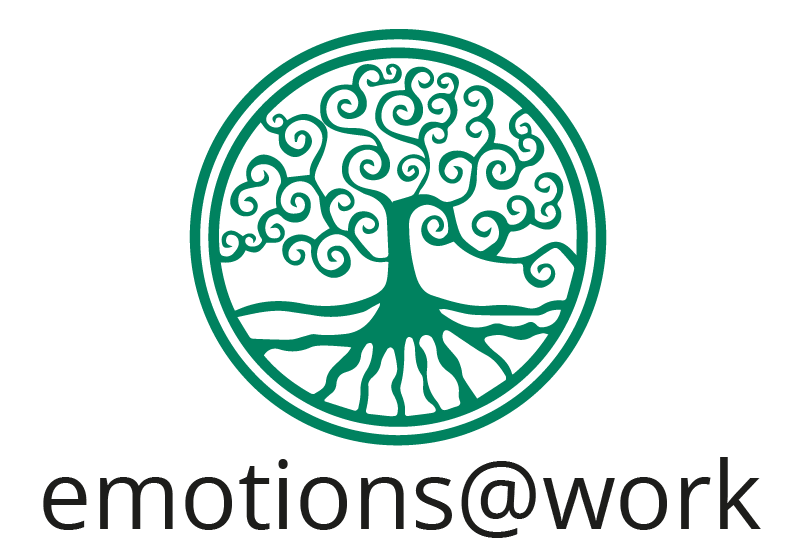The Credibility Gap
Every team’s effectiveness and morale can suffer when there is a credibility gap in the team’s leader. How are you presenting yourself as a…
The Relationship Between Anxiety and Control
We frequently discuss experiencing intense worry and distress due to situations beyond our control. Such situations may include interactions with co-workers who don’t actively…
Continue Reading The Relationship Between Anxiety and Control
Shared Team Objectives: Boosting Morale
A shared team objective can have a significant positive impact on morale as it creates a sense of purpose and unity within the team.…
Innovation and Emotional Independence
Innovation is the driving force behind progress and development in any field. It is the result of curiosity, the desire to explore new ideas…
Gaining an Understanding of Your Own Emotions
If you find yourself disconnected from your own experience, spinning in your head, you may struggle to comprehend your…
Continue Reading Gaining an Understanding of Your Own Emotions
The Impact of Denial on Collaboration
Self-awareness is the ability to objectively recognize and understand your own emotions, behaviors, strengths, weaknesses, and their impact on yourself and others. Denial, on…
Purposeful Discovery: A Strategy for Lifelong L&D
Purposeful discovery is all about goal-oriented exploration which opens learning possibilities and connects you with your purpose. John Stepper, the creator of the Working…
Continue Reading Purposeful Discovery: A Strategy for Lifelong L&D
Motivating Employees Requires Meaningful Work
Motivation is critical to achieving performance in organizations. Work motivation is a complex interplay of internal and external factors that initiate work behavior and…
Continue Reading Motivating Employees Requires Meaningful Work
How to Tackle Conflicts in Working Environments?
There are negative aspects of conflict in the workplace, the most significant facts are the following: 45% of employees experience distress while 34% of…
Continue Reading How to Tackle Conflicts in Working Environments?
Soft Skills on The Rise
The global pandemic has highlighted the importance of interpersonal skills as key assets that promote success. Other key learning skills mentioned were adaptability and…
Appreciation and Employee Turnover
The negative impact of not feeling appreciated “79% of employees leave their job because they don’t feel appreciated” High-achieving organizations are guided by leaders…
Why is Emotional Intelligence a Driver of Performing Sales Teams?
The main skill recognized in efficient salespeople is assertiveness. However, assertiveness is a consultative selling skill, not a hard-selling skill. It is an emotional…
Continue Reading Why is Emotional Intelligence a Driver of Performing Sales Teams?
Controlling the Controllable: Three Recommendations to Manage Uncertainty
A consistent finding in psychology is that people don’t like uncertainty. Luckily, there are a few ways to manage uncertainty. Here are three quick…
Continue Reading Controlling the Controllable: Three Recommendations to Manage Uncertainty
Are you Ready to Create a Growth Mindset?
Emotional intelligence practices can help individuals develop the resilience and positive mindset needed to transition from a fixed to a growth mindset. Cultivating skills…
What are the Main Differences Between a Boss and a Leader?
A leader uses their EMOTIONAL INTELLIGENCE SKILLS to effectively engage with others. Leaders are able to identify, use, understand, and manage emotions in an…
Continue Reading What are the Main Differences Between a Boss and a Leader?
Improve your Stress Tolerance with Emotional Intelligence
Stress is triggered when we get carried away by strong emotions. The daily challenge of dealing effectively with emotions is critical to the human condition…
Continue Reading Improve your Stress Tolerance with Emotional Intelligence
Recovering Internal Balance
Based on our perceptions, we experience daily situations charged either with positive or negative emotions. As life can be metaphorically understood as a seesaw…
Asserting Independence at Work
Being independent means that you are capable of feeling, thinking, and working on your own. Are you independent or looking to others for advice,…
The Fine Line Between Self-Regard and Overly Expressing Self-Confidence
Self-regard means that you feel comfortable enough about yourself so that you don’t need to impose your power through an all-encompassing confidence to make…
Continue Reading The Fine Line Between Self-Regard and Overly Expressing Self-Confidence
Which Stance to Follow during Conflict Resolution?
When was the last time you paused to observe what was your stance in the face of conflict resolution? We SHIFT our conflict resolution…
Continue Reading Which Stance to Follow during Conflict Resolution?
Decision-Making and Asymmetrical Information
Asymmetric information, also known as “information failure,” occurs when one party in a “transaction” possesses greater material knowledge than the other party. We tend…
Continue Reading Decision-Making and Asymmetrical Information
Fluid Networking: Reshaping the 70-20-10 L&D Model
L&D initiatives can be accomplished through fluid networking in the form of self-directed learning.
Continue Reading Fluid Networking: Reshaping the 70-20-10 L&D Model
The Acceptance Process: Moving Through Change
Sudden life changes sweep us off our feet and leave us feeling scared and vulnerable. Almost instantly our mind, driven by nervous emotions and…
Continue Reading The Acceptance Process: Moving Through Change
The Purposeful Listener
I once read the famous quote from the Greek philosopher Epictetus, ‘We have two ears and one mouth so that we can listen twice…
Strengthening the Flexibility Muscle
Flexibility has long been regarded as a cultural embedded skill or quality. We tend to view more relaxed cultures and individuals as more flexible,…
Coronavirus: Positive Outcomes from the Home Office Policy
As you all know the Corona virus (COVID-19) has landed in Europe. As precautionary measure the company that I work for, located in suburban…
Continue Reading Coronavirus: Positive Outcomes from the Home Office Policy
Culture Eats Strategy for Breakfast: How EQ Tools can Support Strategies
Normally, after long and heated planning meetings, new strategies are conceived and rolled out. Most of these strategies are set with “fact and figures”…
Continue Reading Culture Eats Strategy for Breakfast: How EQ Tools can Support Strategies
Going Green…Going Conscious…Going Happy
Going Green Many companies fueled by the increasing demand of sustainable products are incorporating green business trends into their practices and operations. For companies…
When Cultural Programming Limits our Potential
Our cultural learning processes developed in our childhood years are based on imitative, instructed, and collaborative learning practices. These different modes of learning are…
Continue Reading When Cultural Programming Limits our Potential
The Courage of Asserting Yourself
The over emphasis given to critical thinking and competitive behaviour has bred organizations that overlook social skills essential to promote an atmosphere of confidence and mutual…
How to Overcome the Fear of Failure
We all have a distinctive mental model that defines our perception of failure. This mental architecture on how we understand failure or apparent failure…
The Power of Words
Have you ever experienced a conversation in which words were sharper than a knife or reassuring like a warm smile? Words convey an intrinsic…
Willful Feeling- Deliberately Influencing our Emotions
Willful feeling is the conscious action of intending how we want to feel in any given situation. This concept is easier to comprehend by…
Continue Reading Willful Feeling- Deliberately Influencing our Emotions
The Leadership Challenge: Implementing a Change Management Plan
In today’s working environment where organizational change is becoming more frequent, leaders must be capable to transform their organizations regularly to deliver a long-term…
Continue Reading The Leadership Challenge: Implementing a Change Management Plan
The ACE Principle Part 4: Engagement and Effect
In previous posts, I have been writing about the importance of managing expectations in both the personal and professional environment and about the difficulty…
Continue Reading The ACE Principle Part 4: Engagement and Effect
The ACE Principle Part 3: Communication and Conscientiousness
Managing expectations is crucial for defining the desired outcome of any situation and paving the way toward an attainable goal. In my previous blog…
Continue Reading The ACE Principle Part 3: Communication and Conscientiousness
The ACE Principle Part 2: Attitude and Attainability
Effective management of expectations is a crucial component of leadership in any situation, as it not only demonstrates our ability to navigate complex circumstances…
Continue Reading The ACE Principle Part 2: Attitude and Attainability
The ACE Principle Part 1: Managing Expectations
We are constantly confronted with situations that require managing expectations, whether in private or professional settings. Circumstances linked to an anticipated outcome entail a…
Continue Reading The ACE Principle Part 1: Managing Expectations
The “Heart Brain” and Human Behavior
Since centuries human beings have studied the connection between intellect and emotions and how this linkage influences our behavior. The Book of the Essences…
Empowerment through Mindfulness: The 5Rs
Have you ever been in a situation where you felt out of control or disempowered? Where no matter how much you tried to be…
3 Components of Emotional Situations: Feelings, Facts and Values
To effectively manage emotionally charged situations, it is crucial to understand that emotional interactions involve three sets of information: feelings, facts, and values. By…
Continue Reading 3 Components of Emotional Situations: Feelings, Facts and Values
Four Reasons Why We Ignore Our Emotions
From a young age, we have been trained to believe that strong emotions are bad and that they expose our weaknesses and vulnerabilities. For…
Self-Awareness and The Decision-Making Process
A very important pillar of emotional competence is self-awareness. By incorporating self-awareness into our decision process, we can leverage our initial position and generate…
Continue Reading Self-Awareness and The Decision-Making Process
Incorporating Emotional Competences: A Simple Three Step Process
Since early childhood, we have been trained to accomplish tasks using logical reasoning, word comprehension, and visual thinking. These skills are measured through standardized…
Continue Reading Incorporating Emotional Competences: A Simple Three Step Process












































